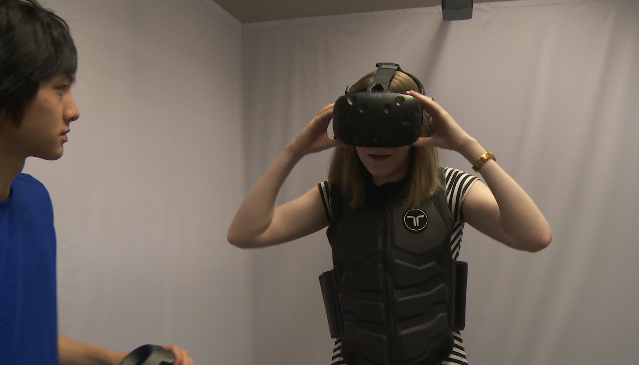Nuclear engineering students at Ontario Tech University are using virtual reality technology to help the public visualize radiation in different objects.

“Typically, to do this, you would have to show equations and diagrams, and then you would see on the television some simulations, but you couldn’t really get it in 3D. Now, with virtual reality…everyone has a virtual reality headset in their own house,” said fourth-year student and project participant Julia Smith.
The students took eight months to complete the project, which was for their final-year capstone project.
They say they wanted to explore visualizing radiation to raise public awareness while helping to address concerns.
“Stuff like Bananas, cereal, the smoke detector…all of it is radioactive,” Smith said.
“The whole point is to put the public into a stepping pool, so to say that hey, radiation isn’t as bad as it seems, because it’s everywhere around you.”

Get daily National news
The project involves VR goggles and a vest. Users are able to see and feel radiation surrounding them in a 3D simulation.
Smith said she hopes the project will break down barriers that prevent others from pursuing jobs in the radiation field.
“To actually get training in radiation, you need to get a radioactive source. To get a radioactive source, you need to get a licence from the nuclear regulator of the country,” Smith explained.
“By having this free tool, we take away that risk element…we can allow more people to interact with radiation without having to have a source of radiation.”
WATCH: (Dec. 28, 2018) California family adopts dog who previously lived inside Chernobyl radiation zone

Ontario Tech’s Faculty of Energy Systems and Nuclear Science says the project is just one of many ideas students generate each and every year.
“When we provide the tools to these students, they can be innovative. We provide them the environment that they can actually improve their experiential learning, which is one of the most important skills they need to have when they go to the industry,” said Sharman Perera, associate professor for the faculty.
The students have already garnered interest from the power generation industry, which hopes to use the technology to educate residents.








Comments
Want to discuss? Please read our Commenting Policy first.